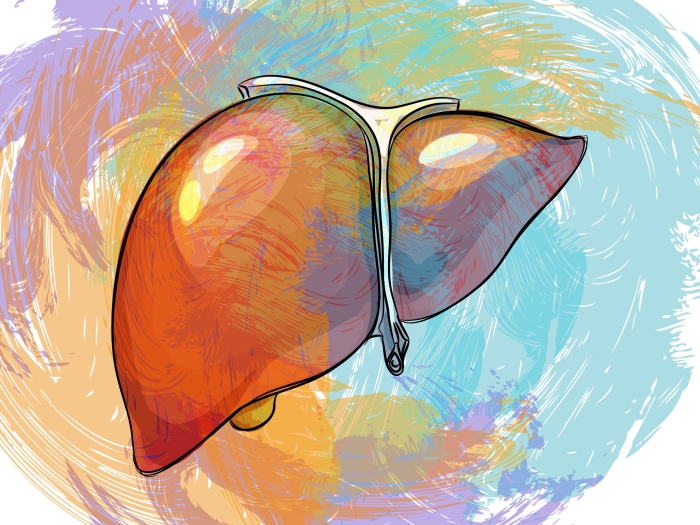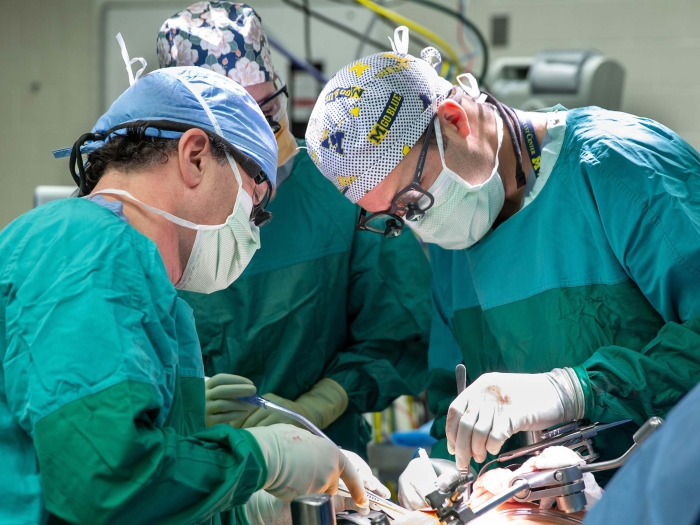A new review suggests it’s time to road test the point-of-care screening tools doctors use to identify brain dysfunction in patients with advanced liver disease.
7:00 AM
Author |

Hepatic encephalopathy — or brain dysfunction in patients with advanced liver disease — can slow reaction times and affect behavior, memory and neuromuscular function.
MORE FROM THE LAB: Subscribe to our weekly newsletter
But screening for it has not been the standard of care, partly because testing is not easily done.
Liver specialists at Michigan Medicine say there's room for improvement in helping doctors predict which patients with cirrhosis of the liver are at risk for falls, hospitalizations or car accidents.
"People with hepatic encephalopathy may have jobs — they could work a forklift, they could be a dentist — and this diagnosis is essential to avoiding a host of adverse events," says liver specialist Elliot Tapper, M.D., assistant professor of internal medicine at Michigan Medicine.
Growing rates of liver disease may put new pressure on physicians and other health care workers to carefully evaluate cirrhotic patients for any degree of hepatic encephalopathy, which can vary from minimal (MHE) to overt. (Obesity is driving an increase in nonalcoholic fatty liver disease, and a major new study in Hepatology shows a rise in alcoholic cirrhosis among a large cohort of adults — though heavy drinking is not the disease's only cause.)
These challenges are met with uncertainty even as point-of-care diagnostics emerges to streamline testing.
Writing in the journal American Journal of Gastroenterology, Tapper and University of Michigan colleagues evaluate the changing landscape of diagnosing minimal hepatic encephalopathy and discuss the key points here.
What to consider in point-of-care diagnostic testing for MHE
Ease of testing: Detecting early encephalopathy typically takes a formal consultation with an expert neuropsychologist in a process born in the 1970s that's costly when it's available. Four common point-of-care tests — the Inhibitory Control Test (ICT), EncephalApp Stroop, Sickness Impact Profile and the Animal Naming Tests — are free and can be performed without specialized skills or equipment. But there's limited data about their usage and what barriers may keep doctors from routinely administering the tests during clinic visits.
SEE ALSO: NASH May Overtake Hepatitis C as Top Liver Transplant Cause
By the numbers: Data are lacking to guide the interpretation of each of these modalities in real-world patients. For instance, there is insufficient data on the optimal test cutoffs, or scores, that may trigger counseling about driving, or on consideration of lactulose or rifazimin to improve mental status. For example, of patients with cirrhosis who get into a car crash, the Inhibitory Control Test predicts 89 percent of accidents. In some states, doctors are required to report neurological conditions that can impair function.
Knowing who benefits: Ideally all at-risk patients would benefit from point-of-care tests. But most tests, according to the review by Michigan researchers, were not studied in patients with a history of or current alcohol abuse, use of psychoactive medicine or in patients with comorbidities, such as renal failure. Up to half of real-world patients with cirrhosis take medicines such as benzodiazepines, opiates and antipsychotics.
Generalizability: It's uncertain how these tests stratify the average patient with cirrhosis. Most practicing physicians cannot be expected to know how the study inclusion criteria affect interpretation of the test. "My hope is we can take these powerful tools and find the cutoffs that apply to the patients we see in clinic," Tapper says.
Meaningful results: Outcome prediction is the key need, says Tapper, also a member of the University of Michigan Institute of Healthcare Policy and Innovation. Rather than tests that define MHE, patients benefit from tests that quantify short-term risk of worsening disease, motor vehicle accidents and falls. More work is needed to study point-of-care tests in contemporary liver patients.

Explore a variety of healthcare news & stories by visiting the Health Lab home page for more articles.

Department of Communication at Michigan Medicine
Want top health & research news weekly? Sign up for Health Lab’s newsletters today!





